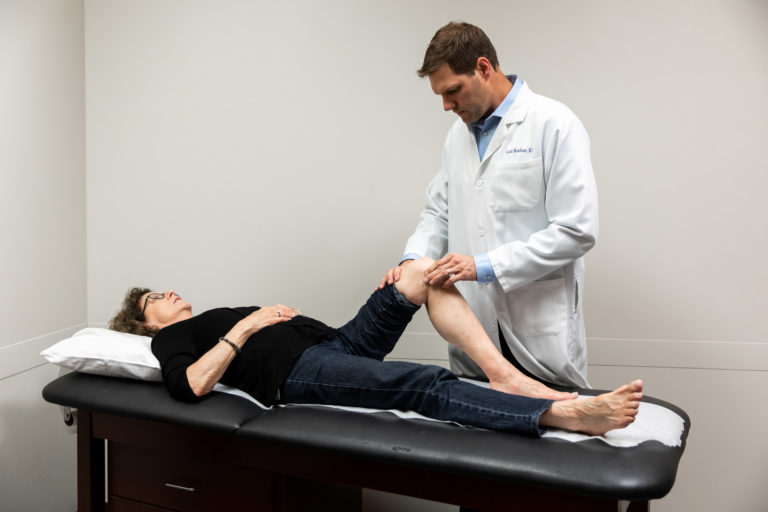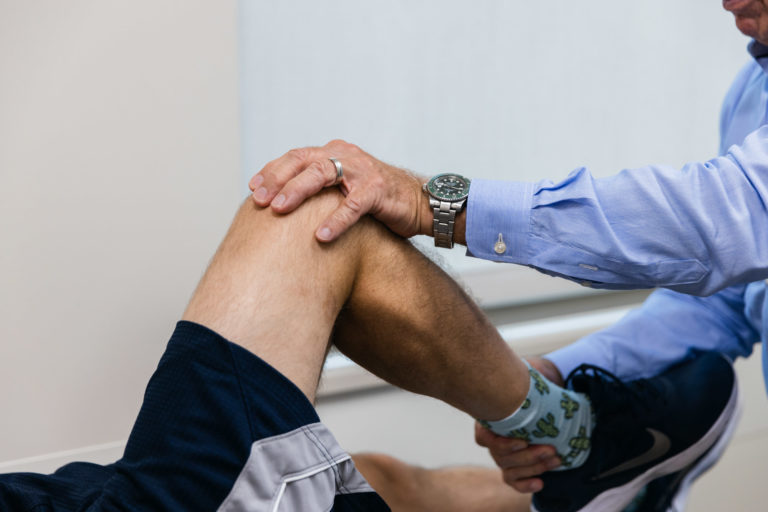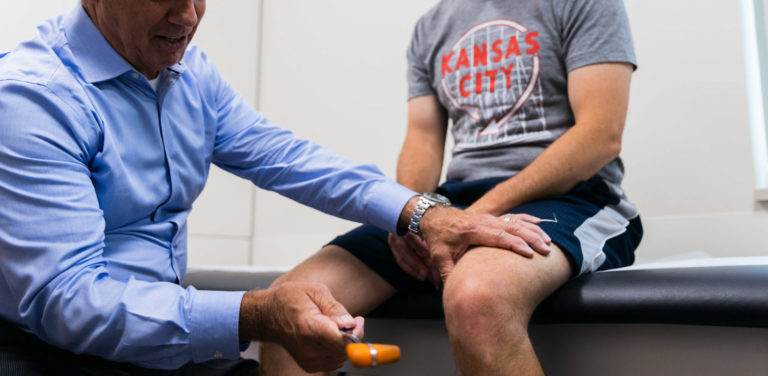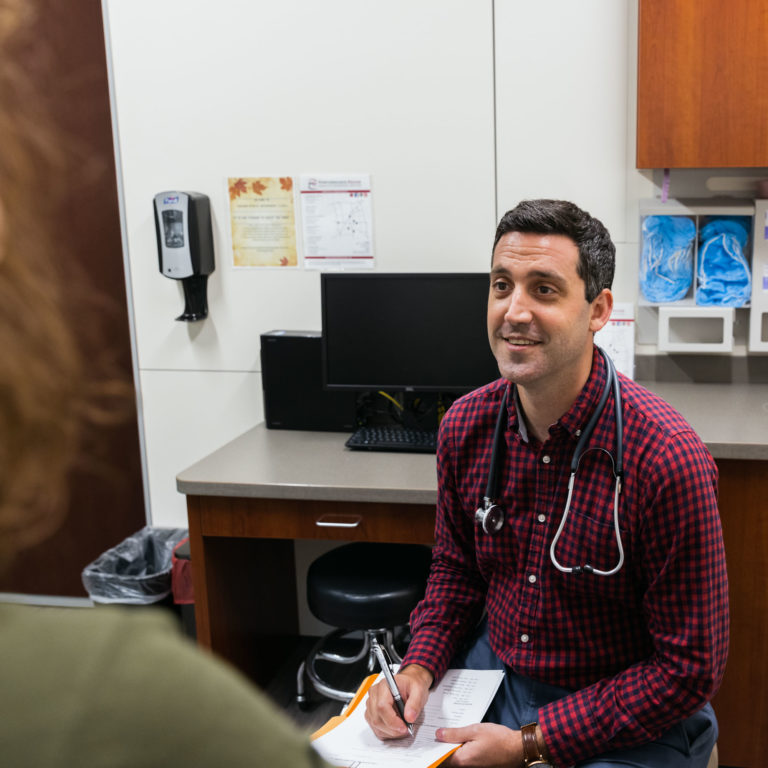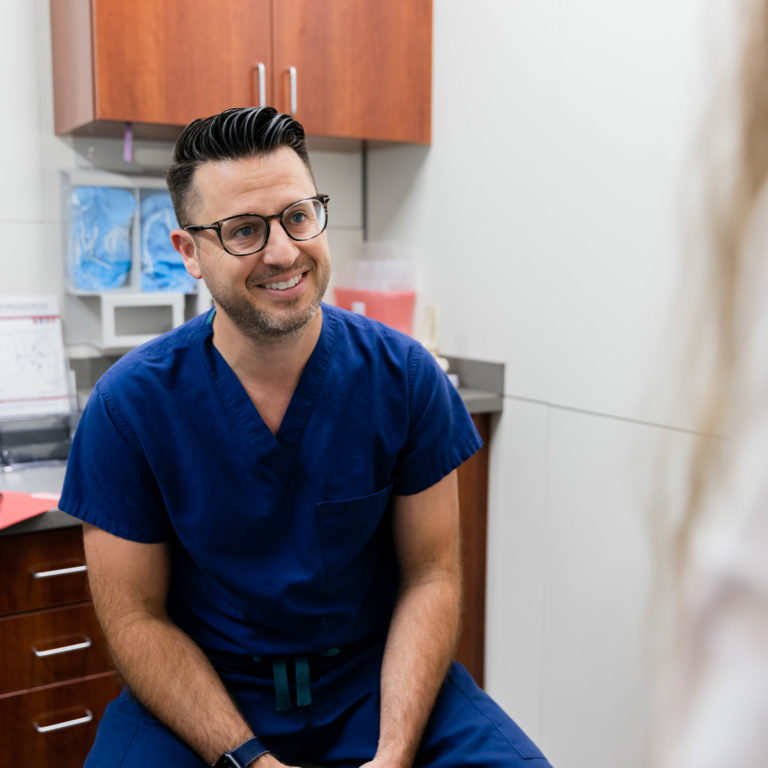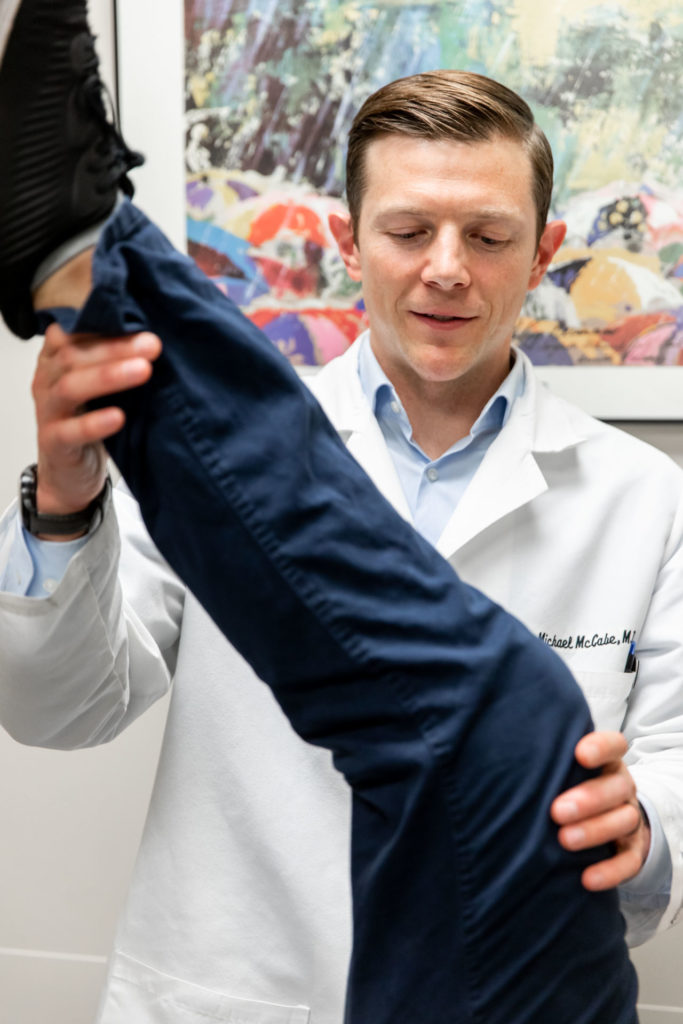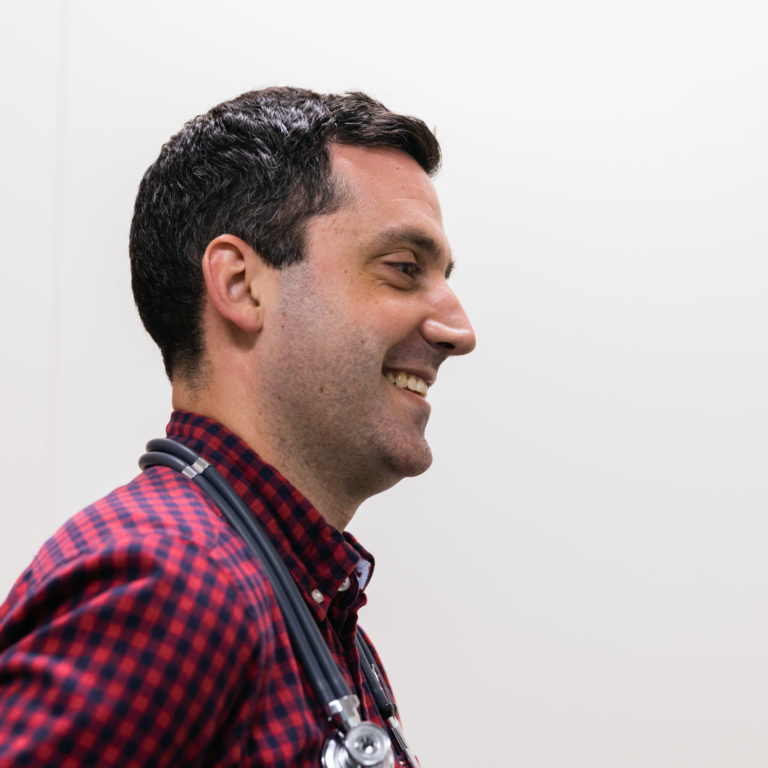Knee Replacement in Kansas City
Knee Replacement
Get back to living with expert care.
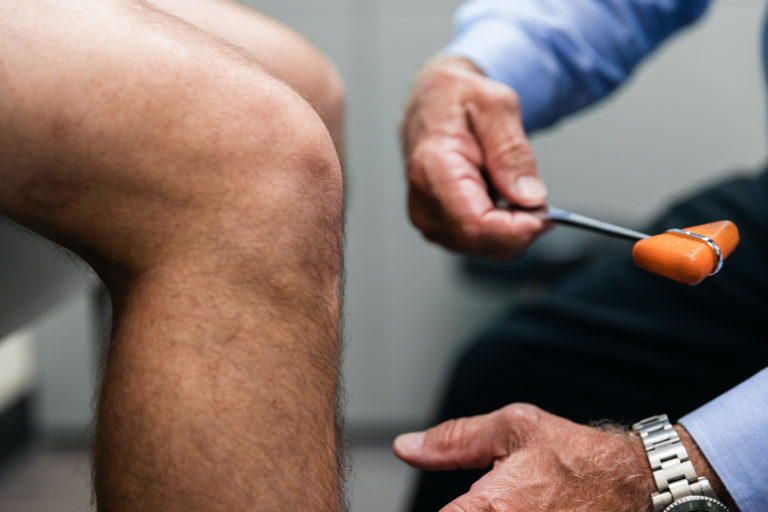
Understanding the Basics Behind Knee Replacement
What is Knee Replacement?
When non-surgical treatments and conservative measures (like arthroscopy) aren’t enough to relieve symptoms and restore function, total joint replacement may be necessary.
A total knee replacement (or knee arthroplasty) works by removing damaged bone and cartilage, often occurring due to arthritis or acute injuries. Once removed, your surgeon will replace your damaged joint with a prosthesis. These prosthetic joints are made from metal, ceramic, and/or plastic materials, replicating the shape and range of motion of your knee.
Our highly-trained orthopedic knee physicians at Kansas City Orthopedic Alliance have the expertise required to treat numerous issues, both surgically and non-surgically. When you visit a specialist at KCOA, we focus on creating a treatment plan based on your specific conditions, symptoms, and recovery goals.
Knee Replacements are a big decision
When you choose Kansas City Orthopedic Alliance, one of our highly-trained orthopedic knee specialists will conduct an initial evaluation to better understand your condition. After a complete review of your results, your provider will discuss whether knee replacement in Kansas City is the best treatment option for you.
Kansas City Orthopedic Alliance Knee Replacement Assessment
Assessing the Injury
Determining the proper treatment process for knee and leg injuries starts with an assessment from one of our experienced providers.
You can think of knee pain as a spectrum, with some instances being more severe than others. The KCOA orthopedic specialists always focus on each patient and their concerns before creating a treatment plan.
Therefore, during your initial appointment, we will often ask questions such as:
From there, we can decide what treatment option will align best with your needs and lifestyle goals. Once we’ve completed a proper assessment, your provider will often begin with a physical examination to help determine the origin point of your pain. In some cases, advanced testing may be required for a full diagnosis.
- Does your pain currently limit you or your activities?
- Has your pain progressed or worsened recently?
- Did you notice or hear a popping sound at the time of your injury?
- Are you having any clicking/popping, grinding or catching/locking sensations in the joint?
- Have you noticed any change in your symptoms that has made it more challenging to function?
- What are your lifestyle goals?
- How has pain affected those goals?
Examination
X-Ray
Also called radiographs, an X-ray captures a picture of the knee. Orthopedic physicians may order an X-ray to rule out the possibility of a fracture (broken bone), osteoarthritis, or other bone-related conditions.
Magnetic Resonance Imaging (MRI)
MRI captures images of muscles, bones, ligaments, cartilage, and tendons to help provide information other tests can’t detail. During an MRI, you will lie on a table that slides into a tube-shaped scanner. The machine creates a magnetic field around you, using pulsed radio waves to form the MRI images.
Symptoms
Common Signs and Symptoms of Knee & Leg Injuries
With so many different parts working together in your knees, there are many potential causes of pain. And each of those causes has a unique set of symptoms.
Knee replacements are major procedures, generally recommended after all other options have been exhausted. Though you can treat many knee issues with conservative measures and non-surgical options, a knee replacement may be necessary if the patient’s knee doesn’t respond to these measures.
Causes
Causes of Knee Pain
The body has different kinds of joints, and they all face different challenges. The severity of your knee and leg pain can vary based on a number of factors, including the location and the source of the issue. The knee is a very vulnerable joint in your body, and the wear and tear builds up over the years. Soft tissue made up of muscles, tendons, ligaments, nerves, and blood vessels protects these joints and bones.
As the years go on, many people struggle with the effects of repeated movements, such as walking, running, or jumping. Arthritis stemming from previous injuries can also play a factor, causing a knee replacement to be the best option for treatment.
Treatment Alternatives
Non-Surgical Treatment
In most cases, surgery is not the first option for treatment at Kansas City Orthopedic Alliance. If we can treat your knee issues with more conservative treatments, we’ll choose those options. We typically exhaust all non-surgical options prior to recommending surgery. Non-surgical treatments for knee injuries include:
Physical Therapy
A trained therapist will focus on the issue that’s causing the pain or symptoms as well as the deficits that are present as a result of the injury. Stretches, strengthening exercises, manual soft tissue work and modalities like hot and cold therapy may be used to help you recover.
Medications
Your doctor may recommend over-the-counter NSAIDs (Non-steroidal anti-inflammatory drugs, such as Advil) or prescription medications. Especially with NSAIDs, you should always talk to your doctor to ensure they are the right treatment for you.
Injections
Cortisone injections can help reduce inflammation, and the effects tend to last for 3 to 6 months before you might need another one. Many people manage their pain with injections and physical therapy.
Regenerative Medicine
Regenerative medicines like stem cell injections or platelet-rich plasma can help nourish worn or damaged tissue. This option works best if you have mild-to-moderate knee pain.
F.A.Q.
Frequently Asked Questions
Kansas City Orthopedic Alliance is here to help.
Our care is personal. Our team is knowledgeable. And we’re more available than ever.
With access to board-certified specialists across Kansas City, we have the tools to meet almost every musculoskeletal condition.
Our Locations
Overland Park, Kansas
10777 Nall Ave Suite 300 Overland Park, KS 66211Leawood, Kansas
3651 College Blvd. Leawood, KS 66211Kansas City, Missouri
Saint Luke's Medical Plaza #1 4320 Wornall Rd., Ste. 610 Kansas City, MO 64111Belton, Missouri
Belton Regional Campus 17067 S Outer Rd #301 Belton, MO 64012Blue Springs, Missouri
St. Mary’s Medical Center, Main Entrance 203 NW R.D. Mize Road, Suite 200 Blue Springs, MO 64014Shawnee Mission, Kansas
7450 Kessler St ste. 140 Merriam, KS 66204Prairie Star (Lenexa, Kansas)
Prairie Star 23401 Prairie Star PkwyBldg. B, Ste. 220 Lenexa, KS 66227

